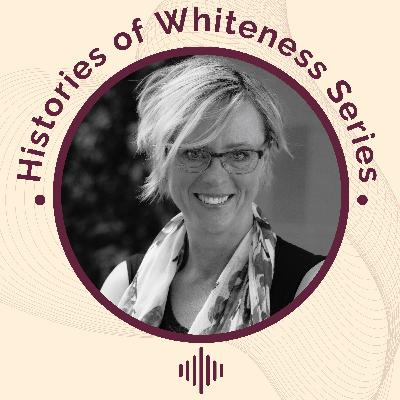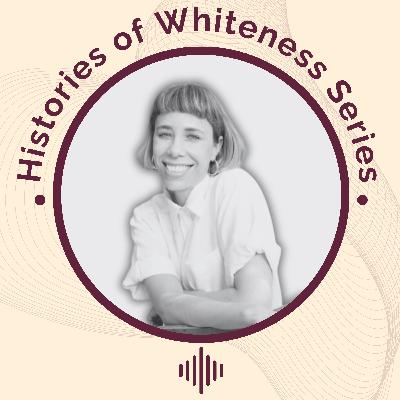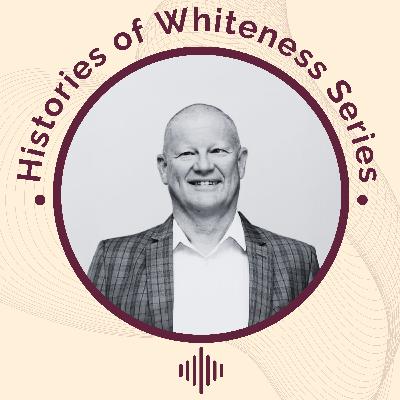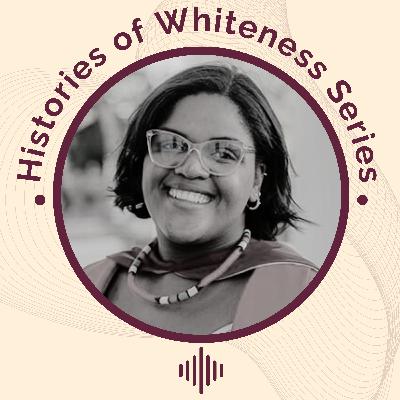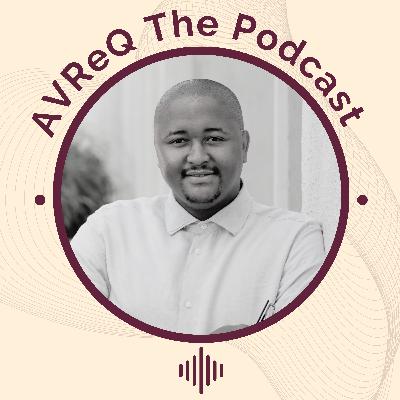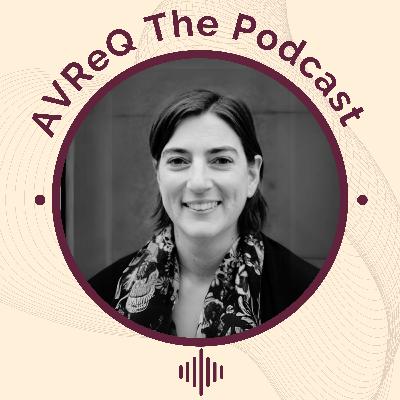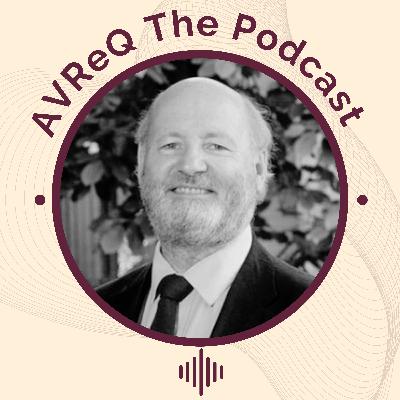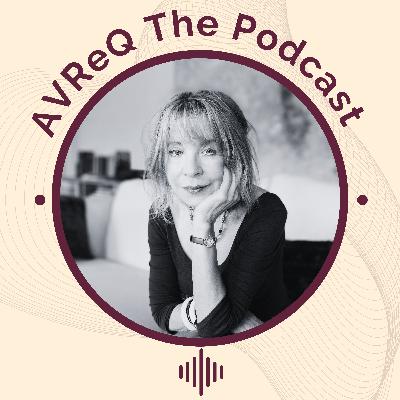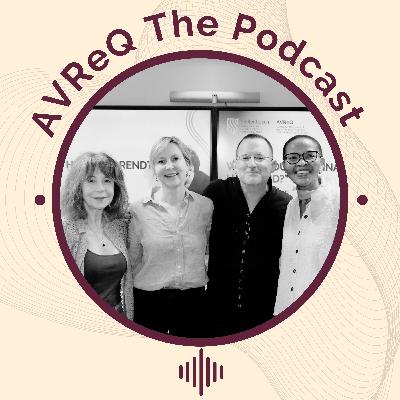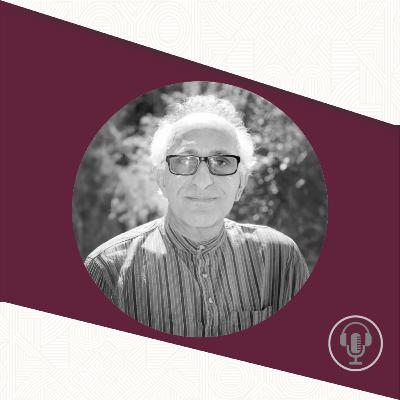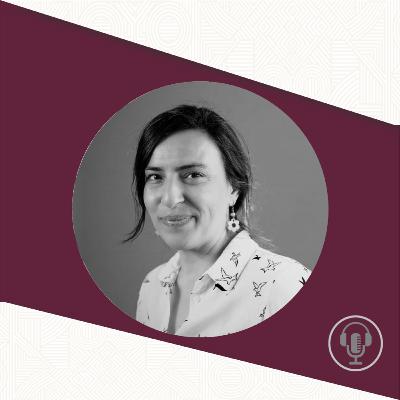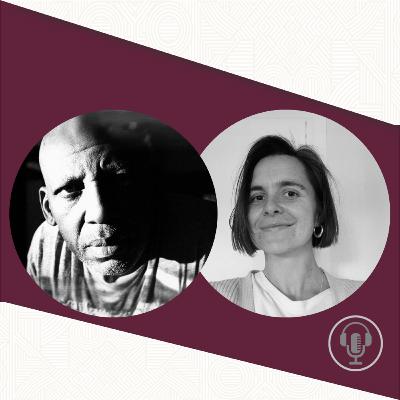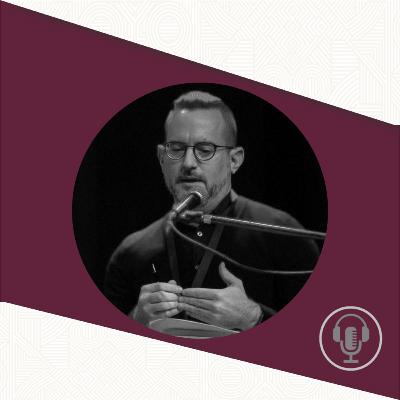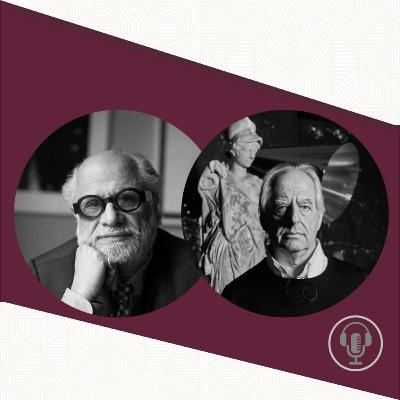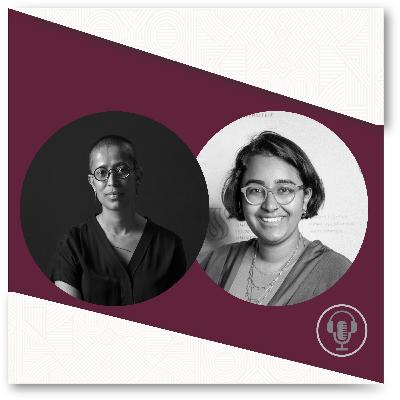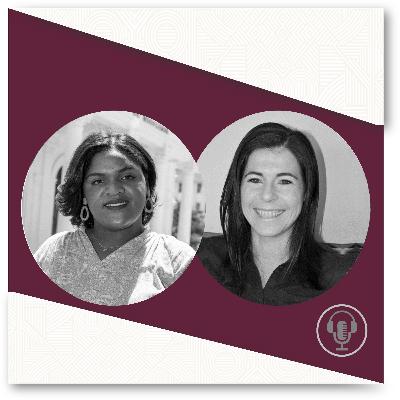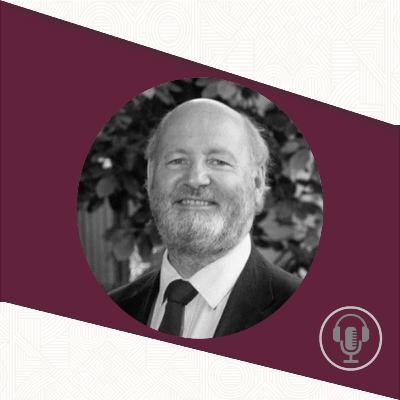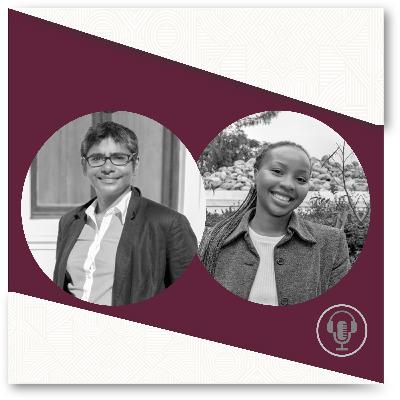Discover AVReQ The Podcast
AVReQ The Podcast

27 Episodes
Reverse
Prof Susanne Klausen traces the apartheid state’s obsession with suppressing interracial sex between white men and black women, revealing how Afrikaner nationalism relied on a punitive, puritanical masculinity to preserve its imagined racial order. Drawing from her archival research and critical race theory, Klausen explores how laws such as the Immorality Act and its amendments were used to criminalise not only acts of intimacy but even the suggestion of desire. White men who transgressed were publicly shamed, flogged, imprisoned, and in many cases driven to suicide, punishments meant to reinforce racial loyalty and sexual discipline. The conversation facilitated by Dr Anell Daries explores the contradictions of white masculinity, shame, and the limits of state power in regulating intimacy.SUSANNE M. KLAUSENSusanne M. Klausen is the Julia Gregg Brill Professor of Women’s, Gender, and Sexuality Studies at The Pennsylvania State University. Her main areas of research are the history of fertility politics in modern South Africa, nationalism and sexuality, and transnational movements for reproductive justice. She is the author of Race, Maternity, and the Politics of Birth Control in South Africa, 1910-1939 (Palgrave Macmillan, 2004) and Abortion Under Apartheid: Nationalism, Sexuality, and Women’s Reproductive Rights in South Africa (Oxford University Press, 2015) that won the Women’s History Prize awarded by the Canadian Committee on Women’s History (2016) and the Joel Gregory Prize awarded by the Canadian Association of African Studies (2016). Prof Klausen has published articles in a range of scholarly journals and is currently writing a monograph on the criminalization of interracial heterosex in South Africa during apartheid.
Dr Azille Coetzee speaks with remarkable vulnerability and intellectual clarity about the intersections of race, gender, and sexuality within white Afrikaner identity. Drawing on personal memoir and theoretical inquiry, she examines how the apartheid regime not only demanded political loyalty but also shaped affective orientations, who white women were expected to love, obey, and fear. Through reflections on feminist genealogy, security logics in suburban life, and the haunting story of white women shipwrecked on the Pondoland coast who chose to remain, Coetzee pushes us to imagine lives no longer organised around whiteness. In conversation with Dr Anell Daries, she explores the emotional grip of inherited power and the possibility of desiring otherwise.AZILLE COETZEEAzille Coetzee is a writer and a research fellow at Stellenbosch University. In her work she explores the relationship between gender and race in colonial logic, and the role of gender liberation in the project of decolonisation. Her research is published in various international feminist journals, like Hypatia, Feminist Review, and the European Journal of Women’s Studies, and she is the writer of the academic monograph Desire at the End of the White Line: Notes on the Decolonisation of White Afrikaner Femininity (2025, UKZN University Press).
In this episode, Prof Neil Roos discusses how whiteness operated not only through state violence but also via the bureaucratic disciplining of the white working class. Drawing on archival material and personal memory, he illuminates how apartheid’s structures absorbed and managed misfit white bodies, from the expansion of the civil service to the little-known ‘work colonies’ where white men deemed deviant were reformed through labour therapy. Through exchanges with Dr Anell Daries and the audience, Prof Roos grapples with the psychological and generational complexities of complicity. He underscores that the task of history is not only to record the past but to provide moral and political off-ramps—ways to imagine futures beyond the prison of whiteness.NEIL ROOSNeil Roos is Dean of the Faculty of Social Sciences and Humanities at the University of Fort Hare. He is also one of the lead implementers of the South African Department of Higher Education and Training’s national collaborative Future Professors Programme (FPP). He writes on histories of race, and his recent research has focused on the historical, moral and political dimensions of white everyday life in apartheid South Africa. From this body of work, he has published essays in Social History, the Journal of Social History, The Historical Journal and International Review of Social History. Roos is also interested in historiography and theory, especially the theoretical moorings of a post-Marxist, left wing social history.
This episode delves into the racialised logic of physical education in twentieth-century South Africa and its entanglement with whiteness, nationalism and citizenship. Dr Anell Stacey Daries examines the history of the Physical Training Battalion (PTB), a state-led initiative aimed at rehabilitating impoverished white boys and men through militarised physical and moral training. Drawing on archival material and historical analysis, she explores how ideals of whiteness were inscribed onto the body through physical education, creating a template for the ideal citizen and reinforcing social separation and racial hierarchies. The conversation further reflects on the legacy of these practices and their continued resonance in institutions and masculinities today.ANELL STACEY DARIES Dr Anell Stacey Daries is an NIHSS/SU Prestigious Postdoctoral Fellow at the Centre for the Study of the Afterlife of Violence and the Reparative Quest (AVReQ), Stellenbosch University. Her research explores the origins, trajectories, and social implications of sciences to do with the human body within the context of South African pedagogical histories. As an extension of her interests in the histories of education in South Africa, her research seeks to explore how notions of citizenship have been constituted and reinforced by educational institutions. Apart from her ongoing research interest, Dr Daries is the postgraduate programmes convenor at AVReQ and has experience as a lecturer, academic administrator and mentor. Through her role, she seeks to facilitate innovative ways of student engagement that foreground the student in the knowledge-building process.
In this powerful and unflinching lecture, Prof Joel Modiri challenges us to reckon with South Africa’s unfinished liberation and the symbolic transformation that has failed to deliver substantive justice. Drawing on the life and legacy of Steve Biko, Modiri frames his argument around three “deaths” of Biko, his physical death under apartheid, the juridical death through post-apartheid legal compromise, and the ongoing erasure of Biko’s radical vision in the present. Modiri’s address traverses’ law, philosophy, politics, and history, offering a sobering account of post-1994 South Africa and a call for the radical reimagining of justice, belonging, and historical redress.Professor Joel ModiriJoel M Modiri is the acting Deputy Dean: Teaching and Learning and Head of the Department of Jurisprudence in the Faculty of Law, University of Pretoria. He holds the degrees LLB cum laude (Pret) and PhD (Pret). His PhD thesis was entitled “The Jurisprudence of Steve Biko: A Study in Race, Law and Power in the ‘Afterlife’ of Colonial-apartheid.” His research and teaching interests are located in the broad field of jurisprudence and relate to critical race theory, Black political thought and African philosophy. His current projects intersect under two umbrellas rooted in the ethics and politics of the global Black radical tradition: Azanian critical theory and constitutional abolitionism. He was recently appointed as a United Nations Independent Eminent Expert in the area of race and racial discrimination.
In this compelling talk, Dr Robyn Gill-Leslie examines how the apartheid regime created a bureaucratic fiction to disguise political killings, using the case of Imam Abdullah Haron as a focal point. She draws on Veena Das’s concept of state magic to show how death in detention was masked as accidental and how this created a lasting space of uncertainty for families. With reference to Berber Bevernage’s idea of allochronic time, she explains how the post-TRC state's failure to pursue prosecutions has left survivors trapped in a painful temporal suspension. Reopened inquests offer limited redress but also reveal how truth can re-emerge through documentation, family persistence, and spectral memory, raising new questions about justice and repair in democratic South Africa.More readings:https://iol.co.za/news/south-africa/kwazulu-natal/2015-03-24-tortured-souls-of-dududu/https://witness.co.za/politics/2023/12/14/sangoma-calls-for-cleansing-ritual-in-kzn/https://www.news24.com/southafrica/news/tears-flow-as-jail-cell-visited-during-inquest-into-imam-abdullah-harons-death-in-detention-20221108ROBYN GILL-LESLIE Robyn Gill-Leslie is the postdoctoral fellow on the Bodies of Evidence project. Gill-Leslie’s work focuses on corporeal, aesthetic and creative approaches to truth recovery after atrocity. Intentionally inter-disciplinary, her work intersects with law, humanities and socio-legal approaches. Focusing on deconstructive, decolonial and reflective academics, she is interested in how the physical body is framed inside and outside of truth recovery mechanisms. Gill-Leslie’s expertise is in sub-Saharan Africa, specifically South Africa’s truth-finding mechanisms including the Truth and Reconciliation Commission, and the Marikana Commission of Inquiry.
Professor John Brewer explores the powerful and paradoxical question: Why do people kill and die for religion? The conversation confronts the ways in which monotheistic religions have been entangled with violence throughout history. Brewer offers a sociological lens on how sacred beliefs, identity politics, and historical trauma create conditions ripe for religious conflict. Dr Demaine Solomons responds by pushing back against overly deterministic readings of monotheism, arguing for a more nuanced understanding that recognises socio-political forces and the potential of religion to foster justice and solidarity. Facilitated by Professor Robert Vosloo, the event also features rich reflections from attendees, making for a deeply layered discussion on faith, power, nationalism, and peacebuilding in both historical and contemporary contexts.JOHN BREWERJohn Brewer is Professor Emeritus in the Senator George J Mitchell Institute for Global Peace, Security and Justice at Queen’s University Belfast. He was awarded an Honorary DSocSci from Brunel University and is a Member of the Royal Irish Academy, a Fellow of the Royal Society of Edinburgh, a Fellow in the Academy of Social Sciences and a Fellow of the Royal Society of Arts. He has held visiting appointments at Yale University, St John’s College Oxford, Corpus Christi College Cambridge and the Australia National University. He has been President of the British Sociological Association. He is Honorary Professor Extraordinary at Stellenbosch University, Honorary Professor of Sociology at Warwick University, and a member of the United Nations Roster of Global Experts. He was the recipient of the British Sociological Association’s Distinguished Service to British Sociology Award in 2023. He is the author or co-author of eighteen books and editor or co-editor of a further six. He is also Series Editor of two book series.
This conversation examines the ethical and psychological dimensions of bearing witness to atrocity, featuring Professor Jacqueline Rose and Professor Pumla Gobodo-Madikizela. Through insights grounded in psychoanalysis, history and ethics, the discussion interrogates the meanings of victimhood, the limits of remorse, and the moral obligation to recognise and respond to human suffering. From the Holocaust to apartheid, and from Gaza to South Africa, the speakers reflect on how we carry history and trauma into the present and the future, asking what it means to truly bear witness. The conversation also confronts the spectacle of violence, the repetition of historical trauma, and the challenge of acting ethically in the face of injustice. This is a moving and urgent dialogue on justice, memory and the body as a site of history.Jacqueline Rose Prof Rose is internationally renowned for her writing on feminism, literature, psychoanalysis, and political conflict, particularly in Israel/Palestine and South Africa. She is Professor of Humanities and Co-Director of the Birkbeck Institute for the Humanities at the University of London and a regular contributor to The London Review of Books, New York Review of Books, and The Guardian. Her books, including The Question of Zion and On Violence and On Violence Against Women, examine the intersections of trauma, history, and representation. In 2020, she delivered the annual Freud lecture, `To Die One’s Own Death – Thinking with Freud in a Time of Pandemic’, livestreamed from the London Freud Museum to the Freud Museum in Vienna. She is a co-founder of Independent Jewish Voices in the UK and a Fellow of the British Academy and of the Royal Society of Literature.
In this intellectually rigorous and emotionally resonant conversation, Professors Jacqueline Rose, Vasti Roodt, Jaco Barnard-Naudé, and Pumla Gobodo-Madikizela examine what it means to “think without banisters” in the spirit of Hannah Arendt. Roodt reflects on Arendt’s call for unending, solitary thought as a practice of ethical responsibility, while Barnard-Naudé traces how Arendt’s idea of the banality of evil has become spectacular in today’s media-saturated political landscape. Rose brings a psychoanalytic and political lens to bear on Zionism, affect, and the destructiveness of “impotent bigness.” Gobodo-Madikizela grounds the discussion in South African experience, particularly the lessons and limits of the Truth and Reconciliation Commission. A powerful audience engagement section expands the conversation to include poetry, witnessing, and the importance of memory as political resistance. Together, the panellists issue a challenge to scholars and citizens alike: to think critically, act justly, and imagine new forms of moral repair.PROF JACQUELINE ROSE is a leading scholar at Birkbeck, University of London, internationally recognized for her groundbreaking contributions to feminist theory, psychoanalysis, and literary criticism.PROF VASTI ROODT is a distinguished philosopher at Stellenbosch University, whose research navigates the intersections of political thought, ethics, and intellectual history.PROF JACO BARNARD-NAUDÉ is a critical legal theorist and professor of jurisprudence at the University of Cape Town, exploring the complexities of law, power, and justice in contemporary society.
In this episode, we explore Prof Saleem Badat's compelling seminar, Reparative Justice and Social Justice Scholarship. Moderated by Dr Anell Daries, the discussion examines the structural and relational harms caused by apartheid and the urgent need for reparative justice in South Africa. Prof Badat draws from personal experiences, such as his detention and torture under apartheid, as well as historical injustices, including forced removals and exclusion in education and sports, to illustrate how reparative justice must address systemic inequalities rather than rely on symbolic gestures. His insights challenge traditional ideas of inclusion and equity, urging South Africans to rethink the true meaning of transformation.
The conversation highlights the role of universities and scholars in advancing reparative justice, with Prof Badat emphasizing the importance of authentic engagement and long-term commitments to generational change. He critiques post-apartheid “inclusion” that fails to confront structural inequality and calls for institutions to actively dismantle practices that perpetuate harm. This episode is a thoughtful reflection on the enduring legacies of apartheid and the transformative power of reparative justice, offering valuable insights for anyone invested in social justice and meaningful societal change. Tune in to be challenged, inspired, and moved by Prof Badat’s vision for a more equitable future.
Saleem Badat
Saleem Badat is a Research Professor in History at the University of the Free State. He was the first CEO of the Council on Higher Education and served as vice-chancellor of Rhodes University. As Program Director at the Mellon Foundation (2014–2019), he led arts and humanities grantmaking for African and Middle East institutions. Combining critical theory and practice, scholarship and activism, his concerns are structure and agency, reproduction and transformation, equity, redress, and social justice in and through universities, and the decolonization and transformation of universities. Prof Badat has authored some 60 book chapters, journal articles and several books, including Tennis, Apartheid and Social Justice (2023), Black Man, You are on Your Own (2009), and received honorary doctorates from the universities of the Free State, York, and Rhodes. His awards include the Inyathelo Exceptional Philanthropy Award and the HSRC-USAF award for research excellence in social justice scholarship.
In this episode, we engage with Professor Mays Imad's transformative lecture, Addressing Continuities of Trauma in Higher Education: Fostering Equity and Intergenerational Wellbeing. A neuroscientist and educator, Prof Imad seamlessly combines personal anecdotes, cutting-edge research, and student narratives to explore the profound impact of trauma on academic spaces. Drawing from her own experiences growing up in Baghdad and her journey as an educator, she highlights how the 2020 pandemic made trauma more visible, exposing its collective and systemic dimensions. Moderated by Prof Pumla Gobodo-Madikizela, the conversation delves into the physiological effects of trauma, the role of institutional courage in fostering resilience, and the importance of empathy and love as guiding principles in education. Prof Imad’s call for educators to reimagine their roles as catalysts for healing and transformation offers an inspiring vision for a more humane higher education system.
Through thoughtful engagement with the audience, Prof Imad challenges traditional approaches to education, urging educators to recognise the ancestral wisdom students bring into classrooms. She emphasises that true resilience stems from supportive systems, not individual endurance, and advocates for rethinking academic spaces as environments for growth, healing, and connection. This episode is a powerful reminder of education’s potential to transcend its academic purpose, becoming a force for care and societal transformation. Tune in for an enlightening conversation that will inspire educators, students, and leaders to embrace a more compassionate and inclusive vision for higher learning.
Mays Imad
Dr Mays Imad’s academic journey began at the University of Michigan–Dearborn, where she pursued philosophy and minored in chemistry. She earned a doctoral degree in cellular & clinical neurobiology, with a minor in biomedical sciences, from Wayne State University School of Medicine in Detroit. After a postdoctoral fellowship at the University of Arizona’s Department of Neuroscience, she joined Pima Community College (PCC), teaching a variety of biology-related subjects. During her tenure at PCC, she founded their Teaching and Learning Center (TLC). Currently an associate professor at Connecticut College, Dr. Imad is interested in understanding the social determinants of student wellbeing and success and conducts research on equity pedagogy. Her work reflects a deep commitment to equity and justice in and through education. With fervor, she advocates for institutions to pay close attention to intergenerational trauma and to prioritize healing and wellbeing. She is a Gardner Institute Fellow, AAC&U Senior STEM Fellow, and a Mind and Life Institute Fellow.
In 1950 the apartheid regime passed the Immorality (Amendment) Act that criminalized heterosexual desire between “Europeans” and “non-Europeans.” During the 35 years the Act was on the statute book over 19,000 South Africans, mostly white men and Black women, were fully prosecuted and more than 11,000 convicted for crossing the colour line for sexual intimacy. The brutality with which the state enforced the Act has been all but forgotten since the democratic transition; the enduring legacies of that brutality have yet to be fully acknowledged let alone addressed by the state and civil society. This presentation will discuss some of the ways the Immorality Act haunts contemporary South Africa. In particular, Prof Klausen will explain how the Act greatly expanded the South African Police’s discretionary power and access to Black women’s bodies, both of which the police vigorously exploited. She argues that centering this dimension of policing during apartheid helps us better understand the ongoing operation of sexual violence perpetrated by police officers against Black women today.
In this episode, we explore the enduring legacies of apartheid-era laws in South Africa. In our latest episode, Prof Susanne Klausen presents a compelling lecture on "The Afterlife of Apartheid's Immorality Act: Enduring Legacies of the Criminalization of Interracial Desire." This episode provides an in-depth look at how the Immorality Act, which criminalized interracial relationships, left a lasting impact on South African society long after its repeal. Prof Klausen examines the expanded powers it gave to the police and the subsequent exploitation of Black women's bodies, drawing connections to present-day issues of sexual violence and racial injustice.
Following the lecture, Dr. Anell Daries offers a critical response, highlighting the challenges of transformation within South African institutions and the ongoing influence of apartheid-era policies. The episode also includes a dynamic discussion with contributions from various scholars, exploring how historical injustices have become normalized over time and the necessity of addressing these legacies to achieve genuine social justice. Tune in to this episode to gain a deeper understanding of the intricate ways in which apartheid laws continue to shape contemporary South Africa, and the vital importance of confronting these historical harms for a more equitable future.
Susanne M. Klausen
Susanne M. Klausen is the Julia Gregg Brill Professor of Women’s, Gender, and Sexuality Studies at The Pennsylvania State University. Her main areas of research are the history of fertility politics in modern South Africa, nationalism and sexuality, and transnational movements for reproductive justice. She is the author of Race, Maternity, and the Politics of Birth Control in South Africa, 1910-1939 (Palgrave Macmillan, 2004) and Abortion Under Apartheid: Nationalism, Sexuality, and Women’s Reproductive Rights in South Africa (Oxford University Press, 2015) that won the Women’s History Prize awarded by the Canadian Committee on Women’s History (2016) and the Joel Gregory Prize awarded by the Canadian Association of African Studies (2016). Prof Klausen has published articles in a range of scholarly journals and is currently writing a monograph on the criminalization of interracial heterosex in South Africa during apartheid.
In this episode, Professor Kopano Ratele and Dr. Sophia Sanan engage in a profound dialogue on the intersections of African art, black subjectivity, and African psychology. They explore the challenges of racialized structures within aesthetic and identity theories, particularly against the backdrop of South Africa's colonial legacy. The conversation investigates the radical potential of African psychology for black students, the need to reframe African art as part of the broader art world, and the transformative power of creativity and decolonial thought in redefining African identities and knowledge systems.
Kopano Ratele
Kopano Ratele is professor of psychology at the University of Stellenbosch and head of the Stellenbosch Centre for Critical and Creative Thought. He is the former director of the SAMRC-Unisa’s Masculinity and Health Research Unit and former research professor at the Unisa where he ran the Transdisciplinary African Psychologies Programme. Ratele was a member of the second Ministerial Committee on Transformation of South African Universities, former chairperson of Sonke Gender Justice, and past president of the Psychological Society of South Africa. He is on the national advisory board for the Future Professors Programme. Ratele has published extensively and his latest books are Why Men Hurt Women and Other Reflections on Love, Violence and Masculinity (2022) and The World Looks Like This From Here: Thoughts on African Psychology (2019).
Sophia O Sanan
Dr Sophia Olivia Sanan (nee Rosochacki) holds a master’s degree in Sociology (from the Universities of Freiburg, Germany; Jawaharlal Nehru University, India and the University of Cape Town, 2014) and a PhD in Sociology through the University of Cape Town (2024). Her doctoral dissertation investigated politics of identity, loss and heritage through a study of the African art collection at the Iziko South African National Gallery. She has a professional background in African cultural policy development, education and art related research and has taught university students in South Africa, as well as travelling academic programs in Uganda, the USA, Brazil and India. Since late 2020, she has worked with 12 museums in Africa, South America and South Asia, exploring ideas and practices of museology from Southern perspectives. She publishes on themes related to museology in the Global South; race and arts education; race, inequality and visual culture.
Resources:
https://www.iziko.org.za/news/masterpiece-of-the-month-johannes-phokela/
This episode will focus on a compelling book exploring South Africa’s unresolved issue of reparation. It critiques the South African Truth and Reconciliation Commission’s failure to adequately compensate victims of colonization and apartheid, which continues to undermine its processes and legacy. By examining the TRC’s key processes and highlighting their hindrance due to the lack of reparation, the discussion will aim to emphasise the deep-rooted trauma caused by this absence. Furthermore, the discussion will also explore the new concept of “reparative citizenship” to confront these challenges productively. This episode is essential for South Africans grappling with ongoing injustices and offers valuable insights for researchers in post-conflict transitional justice and politics.
Prof Jaco Barnard-Naudé
Jaco Barnard-Naudé (BCom(Law)(cum laude) LLB(summa cum laude)LLD(UP)MA(UCT)) is Professor of Jurisprudence and Co-Director of the Centre for Rhetoric Studies in the Department of Private Law. In the Faculty, Professor Barnard-Naudé currently serves as the Director of Research. He holds a B2-rating from the National Research Foundation (NRF) and is a past recipient of the UCT Fellows Award. In the United Kingdom, Prof Barnard-Naudé was the British Academy’s Newton Advanced Fellow in the Westminster Law & Theory Lab, School of Law at the University of Westminster between 2017 and 2020, and Honorary Research Fellow in the Birkbeck Institute for the Humanities, University of London in 2019.
Prof Joel Modiri
Joel M Modiri is an Associate Professor and Head of the Department of Jurisprudence in the Faculty of Law, University of Pretoria. He holds the degrees LLB cum laude (Pret) and PhD (Pret). His PhD thesis was entitled “The Jurisprudence of Steve Biko: A Study in Race, Law and Power in the ‘Afterlife’ of Colonial-apartheid”. His research and teaching interests are located in the broad field of jurisprudence and relate to critical race theory, Black political thought and African philosophy. His current projects intersect under two umbrellas rooted in the ethics and politics of the global Black radical tradition: Azanian critical theory and constitutional abolitionism. He was recently appointed as a United Nations Independent Eminent Expert in the area of race and racial discrimination.
In this episode, Professor Homi Bhabha engages in a conversation with acclaimed artist William Kentridge. Their dialogue revolves around Kentridge's latest project, "The Great YES, The Great No," a chamber opera set amidst a surreal 1941 sea voyage. They examine the thematic underpinnings of surrealism, fragmentation, and social dialogue in Kentridge's work, shedding light on his collaborative artistic process. Kentridge reveals his inspiration from historical moments and his approach to creating cohesive narratives from fragmented texts. The conversation delves deep into the universality of questions posed by Kentridge's art, touching on themes of migration, colonialism, and the ongoing quest for social justice. This episode explores art's role in reflecting and shaping our understanding of the world.
HOMI K. BHABHA
Professor Homi K. Bhabha is the Anne F. Rothenberg Professor of the Humanities in the Department of English and Comparative Literature, Harvard University. He was founding director of Harvard University’s Mahindra Humanities Center and director of the Harvard Humanities Center. He has received numerous awards and distinguished honorary professorships, including Extraordinary Professor affiliated with AVReQ, as reported in the Harvard Crimson here. Professor Bhabha is the author of numerous works exploring postcolonial theory, cultural change and power, contemporary art, and cosmopolitanism. His book Location of Culture has recently been reprinted as a Routledge Classic and has been translated into seven languages. He has written an introduction to a new translation of Franz Fanon’s The Wretched of the Earth.
WILLIAM KENTRIDGE
From his base in Johannesburg, where he was born, William Kentridge works across artistic mediums, often with dozens of collaborators, to make art that is grounded in history, literature, politics and science. His work has been seen in museums and galleries internationally since the 1990s and can be found in private collections and institutions across the globe. He has directed operas for the Metropolitan Opera in New York, La Scala in Milan, the English National Opera in London, the Salzburg Festival and others. His original works for stage combine performance, projections, shadow play, voice and music. Kentridge is the recipient of honorary doctorates from several universities including Yale, Columbia and the University of London. He has been awarded the Kyoto Prize (2010), the Princesa de Asturias Award in 2017 and the Praemium Imperiale Prize in 2019
Radical Familiar. A different kind of aesthetic encounter
In this installment of the masterclass, Rabia Abba Omar was in conversation with Gabrielle Goliath as she shared on “Radical Familiar. A different kind of aesthetic encounter.” This discussion of the AVReQ Masterclass stirred a profound contemplation on the intricate threads of representation, encounter, and response. Gabrielle directed her focus towards the realm of radical familiarity, black decolonial feminist repair, and the nuanced histories of black femme bodies. Through a tapestry of insights, the discourse offered a panorama of illumination, revealing pivotal junctures.
Gabrielle Goliath
Gabrielle Goliath situates her practice within the histories, life worlds and present-day conditions of black, brown, femme and queer life, refusing its terminal demarcation within a paradigm of racial-sexual violence. The conditions of hope that underscore the social encounters of her work ask for what she terms a life-work of mourning – “for to imagine and seek to realise the world otherwise is to bear with us those lost to or still surviving an order of violence we hope to and must transform”. Goliath’s immersive installations have shown across South Africa and internationally. She has won a number of awards including a Future Generation Art Prize/Special Prize (2019), the Standard Bank Young Artist Award (2019), and the Institut Français, Afrique en Créations Prize at the Bamako Biennale (2017). Her work features in numerous public and private collections, including Kunsthalle Zürich, TATE Modern, Frac Bretagne, Iziko South African National Gallery, Johannesburg Art Gallery, and Wits Art Museum.
Between 1950 and 1985, tens of thousands of South Africans were arrested for contravening the Immorality Act (1950) that prohibited extramarital heterosex between whites and Blacks and was extended in 1957 to also criminalize the attempt to have interracial sex. Aimed at maintaining whites’ mythical purity, the law was both a weapon to mould the sexual behaviour of transgressive heterosexual white men and a means to constitute race and reproduce racial inequality. Implementing the law inflicted great harms, not only on white men, but also on the Black women with whom they were arrested, harms that were gendered, racialized and sexualized in particular ways. In this presentation, Susanne M. Klausen discusses the state’s policing of ‘mixed’ sex during apartheid, from its role in cultivating a culture of surveillance, to the brutal methods of enforcement, to some of the ways the ugly “lessons learned” about race, desire and sex continue to haunt South Africa today.
Susanne M. Klausen
Susanne M. Klausen is the Julia Gregg Brill Professor of Women’s, Gender, and Sexuality Studies at The Pennsylvania State University. Her main areas of research are the history of fertility politics in modern South Africa, nationalism and sexuality, and transnational movements for reproductive justice. She is the author of Race, Maternity, and the Politics of Birth Control in South Africa, 1910-1939 (Palgrave Macmillan, 2004) and Abortion Under Apartheid: Nationalism, Sexuality, and Women’s Reproductive Rights in South Africa (Oxford University Press, 2015) that won the Women’s History Prize awarded by the Canadian Committee on Women’s History (2016) and the Joel Gregory Prize awarded by the Canadian Association of African Studies (2016). Prof Klausen has published articles in a range of scholarly journals and is currently writing a monograph on the criminalization of interracial heterosex in South Africa during apartheid.
This episode offers a nuanced dissection of the rise and development of physical education, later reimagined as sport science, as a department and as an academic discipline at Stellenbosch University from its inception in 1937 to 2019. Located within a complex institutional history, this research foregrounds the extent to which the university’s ethos of conservativism and traditionalist values influenced departmental shifts over the course of eight decades. At its core, the presentation examines the extent to which the university played a crucial role in the politics of nation-building across the twentieth and early twenty-first centuries.
ANELL STACEY DARIES
Anell Stacey Daries graduated with a PhD in history at Stellenbosch University. Her broad research explores the origins, trajectories and social implications of sciences to do with the human body. Her doctoral research is titled “The History of Physical Education at Stellenbosch University, 1937-2019” and examines the history of scientific and academic practices in physical education at the institution. Apart from her ongoing research interest, Dr Daries has experience as a lecturer, academic facilitator and mentor. As her teaching philosophy foregrounds a student-centred ethos, Dr Daries seeks to facilitate innovative ways of student engagement which foregrounds the student in the knowledge-building process.
HANDRI WALTERS
Handri Walters graduated with a PhD in social anthropology at the University of Stellenbosch. Her research focuses on race and racial categorization within a broader history of racial science and the interstices between knowledge production, politics and ideology. In this regard her research has delved into the institutional history of Stellenbosch University as related to Afrikaner nationalism, the institutional production of knowledge, and the conceptualization of Afrikaners and its others. Recent iterations of her research include the spectre of race as currently manifesting in scientific study – including, but not limited to, the field of population genetics.
This lecture addresses the public value of the social sciences and its implications for ethical engagement by academics, particularly focusing on universities’ moral responsibilities in societies emerging out of conflict.
JOHN BREWER
John Brewer is a Professor of Post Conflict Studies in the Senator George J Mitchell Institute for Global Peace, Security and Justice at Queen’s University Belfast. He was awarded an Honorary DSocSci from Brunel University and is a Member of the Royal Irish Academy, a Fellow of the Royal Society of Edinburgh, a Fellow in the Academy of Social Sciences and a Fellow of the Royal Society of Arts. He has held visiting appointments at Yale University, St John’s College Oxford, Corpus Christi College Cambridge and the Australia National University. He has been President of the British Sociological Association. He is Honorary Professor Extraordinary at Stellenbosch University and is a member of the United Nations Roster of Global Experts. He is the author or co-author of sixteen books and editor or co-editor of a further six.
In this instalment of the masterclass, Gratia Aimee Ilibagiza is in conversation with Professor Azrini Wahidin as she shares her experience of conducting research with prisoners, her feminist praxis, and the processes of reparative knowledge. This discussion is regarded as an extension of the AVReQ series on sensitive research, creating new ethics for social justice research, and draws on Azrini’s experience in the field. Prof Azrini thematically charts her experience of conducting research with prisoners, sex offenders, the LGBTQI community in prison, and death row offenders (about the meaning of death and dying) in England, Wales, and the U.S.A. Prof Azrini furthermore reflected on what it means to be in such spaces as a researcher and entering this very particular field of trauma. A field/space where she says, one must learn to listen and engage differently in all areas of the research, including preparing before one goes into the field, negotiating access, thinking very carefully about one’s own positionality, and also about the final products that are produced from your work. Prof Azrini similarly reflected on what it means to bear witness, the burden on the researcher who goes in and witnesses within a particular space and what you take with you when you leave such spaces. In essence, this conversation was about giving embodied insight into the work and what it means to do research in the area of the reparative quest.
AZRINI WAHIDIN
Professor Azrini Wahidin from the University of Warwick, is the author of 13 co-edited books, 3 monographs and numerous articles. She is a Fellow of Academy of Social Sciences, and for the latest Research Exercise Framework of 2021, was a panel member for Social Policy and Social Work UOA 20. She is a feminist researcher and is the current Chair of the Ethics Committee for the British Society of Criminology. She was responsible for writing the Statement of the Ethics for the BSC and has written on the subject of ethics and the dilemmas of researching sensitive issues. Her latest book, ‘Under Siege: The role of women in liberation movements under the Apartheid regime and the transition to peace’, builds on a body of work on female ex-combatants, the legacy of Conflict, transition justice, peace and reconciliation.
GRATIA AIMEE ILIBAGIZA
Gratia Aimee Ilibagiza is an MA student in Social Anthropology at Stellenbosch University. She describes herself as a creative improvisor, Rwandan traditional dance practitioner, and feminist. Her research interests include questions of identity, embodiment and belonging amongst Rwandan refugees living in exile, through the lens of cultural dance and performance. Gratia is dedicated to and interested in educational spaces, where she can apply her knowledge and skills as contributions to collective growth and healing. She was part of the inaugural cohort of the Zanele Mbeki Fellowship program and received the Mellon Mays Undergraduate Fellowship, previously at Wits University, where she attained her undergraduate qualifications.


